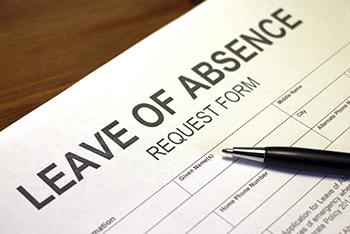 Jan. 6, 2015 – In a case of first impression, a state appeals court has ruled that an undocumented worker can recover attorney’s fees for successfully pursuing a claim that her former employer violated the Wisconsin Family Medical Leave Act by firing her.
Jan. 6, 2015 – In a case of first impression, a state appeals court has ruled that an undocumented worker can recover attorney’s fees for successfully pursuing a claim that her former employer violated the Wisconsin Family Medical Leave Act by firing her.
Karen Alverez, an undocumented worker, was fired after she took medical leave from Burlington Graphic Systems Inc. She worked there for 10 years as a printing press operator, but took time off to have a piece of glass surgically removed from her cheek.
After the Department of Workforce Development found probable cause to believe Burlington violated the FMLA, the company rehired her as a “new employee,” then fired her again when she was not able to produce documentation of her legal work status.
An administrative law judge (the ALJ) found that Alverez could not legally accept employment in the U.S. as of November 2011. The parties stipulated that Alverez’s undocumented status was not discovered until March 2012, without fault by either party.
The ALJ concluded that Burlington violated the FMLA when it terminated Alverez’s employment for taking time off for a serious medical condition.
In addition to other remedies, it ordered Burlington to pay attorney’s fees of almost $9,000 but rejected back pay for the period that Alverez was unauthorized to work.
Burlington petitioned for judicial review, arguing Alverez could not get attorney’s fees because her undocumented status precluded back pay for a violation of the WFMLA. The circuit court affirmed that Alverez could get attorney fees despite her work status.
In Burlington Graphic Systems Inc. v. Department of Workforce Development, 2014AP762 (Dec. 23, 2014), the District II Wisconsin Appeals Court affirmed the ALJ’s decision, concluding that the WFMLA protects workers employed in Wisconsin, regardless of their immigration status, and Burlington violated Alverez’s rights.
“Burlington argues that finding that it violated the Wisconsin FMLA when it discharged Alvarez after she returned from medical leave would confer a right or benefit upon Alverez – employment – that she was not entitled to due to her undocumented status,” wrote Judge Paul Reilly for a three-judge panel. “Burlington is wrong.”
The panel noted that at-will employees, like undocumented workers, have no right to continued employment either, but all employees are protected by the WFMLA. The panel also noted that its decision was supported by federal immigration law.
“Burlington’s interpretation would create an incentive for employers to hire undocumented workers whose medical leave rights they could thereafter violate with impunity,” Judge Reilly wrote. “We cannot countenance, and do not think that the legislature or Congress intended, such a result.”
The ALJ properly exercised discretion when awarding attorney’s fees for successfully bringing the claim to light, the panel ruled, noting the ALJ did not award back pay for the time she was employed as an unauthorized worker.
